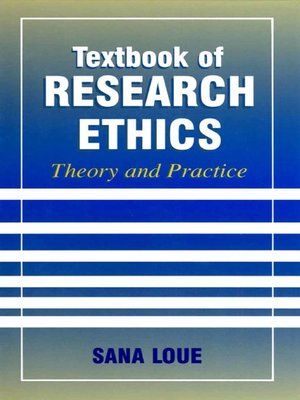
Sign up to save your library
With an OverDrive account, you can save your favorite libraries for at-a-glance information about availability. Find out more about OverDrive accounts.
Find this title in Libby, the library reading app by OverDrive.



Search for a digital library with this title
Title found at these libraries:
| Library Name | Distance |
|---|---|
| Loading... |
The International Ethical Guidelines for Biomedical Research Involving Human Subjects (CIOMS and WHO, 1993: 11) defines "research" as referring to a class of activities designed to develop or contribute to generalizable knowledge. Generalizable knowledge consists of theories, principles or relationships, or the accumulation of information on which they are based, that can be corroborated by accepted scientific techniques of observation and inference. The International Guidelines for the Ethical Review of Epidemiological Studies (CIOMS, 1991) recognizes that it may be difficult to distinguish between research and program evaluation. It offers the following guidance: "The defining attribute of research is that it is designed to produce new, generalizable knowledge, as distinct from knowledge pertaining only to a particular individual or programme" (CIOMS, 1991, Guideline 52,23). Health research includes both medical and behavioral studies that relate to health. Research can be conducted in conjunction with patient care (clinical research), or it can be conducted outside of the context of clinical care. Research may involve only observation, or it may require, instead or in combination, a physical, chemical, or psychological intervention. Research may generate new records or may rely on already-existing records.







